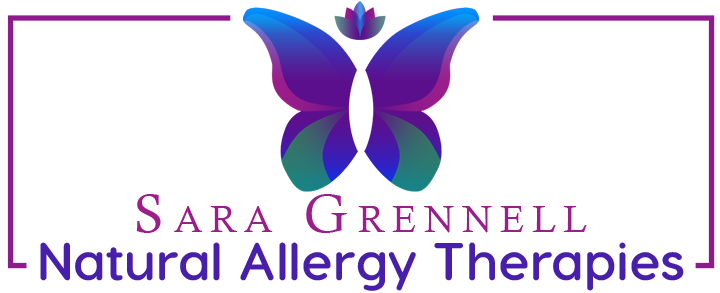
What is Hayfever?
Hayfever (Seasonal Allergic Rhinitis) is an inflammatory condition, which affects the mucous membranes of the nose, throat, palate, sinuses and eyes. It is caused mainly by grass and other plant pollens in the air and is exacerbated by dusts, chemicals and other atmospheric pollutants. Sneezing and blocked or runny nose, itching of the eyes, palate and throat and a general feeling of congestion in the head are common symptoms. There may also be a feeling of tightness and wheezing in the chest. Twenty years ago Hayfever was estimated to affect some 10% of the population of the British Isles. Now about 15-20% are sufferers. The population of Australia and the USA are even more severely affected.
Why do we get Hayfever?
All allergic reactions have two components. There is an inherited predisposition to the condition, and it is made worse by stress. Conversely, when stress is relieved, the condition improves. The inflammation of the mucous membranes is caused by a combination of the protein, immunoglobulin E (IgE) and the pollen being deposited on the surface of the cells (Mast Cells) which then burst and release histamine and other chemicals into the surrounding tissues. This is an overreaction of the body’s natural defence mechanism.
What are the treatments offered by a Doctor?
These generally focus on the suppression of symptoms.
Antihistamines have been available for over 50 years and reduce the effect of the histamine released from the Mast Cells. Many cause drowsiness which can prove dangerous when the sufferer is driving or in the workplace. The more modern antihistamines are less troublesome in this respect.
Sodium cromoglycate protects the mast cells from damage and so reduces the release of histamine. This drug has been available since the 1960’s and may be useful if taken before symptoms appear.
Decongestants used in combination with the above groups of drugs may reduce the swelling of the mucous membranes.
Steroid medication by mouth reduces the symptoms of Hayfever but its possible side effects make its use unacceptable except by nasal spray which has to be administered frequently in order to be effective.
Immunotherapy – the injection of dilute solutions of pollens over a period of many months may reduce the symptoms of Hayfever. It is not suitable for all sufferers and has been known to induce serious anaphylactic shock reaction in some individuals. For this reason the British Health Ministry has imposed strict guidelines for its use.
Homeopathy
What can Homeopathy do? Most people nowadays know that Homoeopathy is a very gentle system of medicine, which relies on the principle of ‘Let likes be cured by likes’. This means a substance that would produce symptoms in a healthy person can address those same symptoms when given in a tiny and harmless amount to a sick person.
How does this work in Hayfever? In two ways:
- Remedies can be given for first aid relief, for example, Red onion (Allium cepa) produces a streaming nose and running eyes in a healthy person. When given to a Hayfever sufferer it may relieve these symptoms. There are also remedies that may help to relieve nasal congestion, itching and other Hayfever symptoms. These can be mixed to make a remedy that may provide temporary relief from symptoms without the side effects of synthetic drugs.
- Isopathic medicines can be prepared in the safe Homoeopathic way that are designed to change the body’s response to pollen. The immune system may be normalised and the Hayfever symptoms possibly either do not appear or may reduce as to be less troublesome. The desensitisation remedies may be used during the Hayfever season or during the winter months in order to reduce symptoms the following year.
Disclaimer
I am not a Doctor and do not offer medical advice. The information on this website is not intended or implied to be a substitute for professional medical advice, diagnosis or treatment. I make no claims, promises or guarantees as to the outcome of any service that is offered on this website. I do not diagnose or treat specific health challenges. You are responsible for your own health, medical treatment and care. Always contact your Doctor if you feel unwell. Any recommendations of supplements are a recommendation only; it is your responsibility to check with your Doctor the suitability of any supplements for you.
